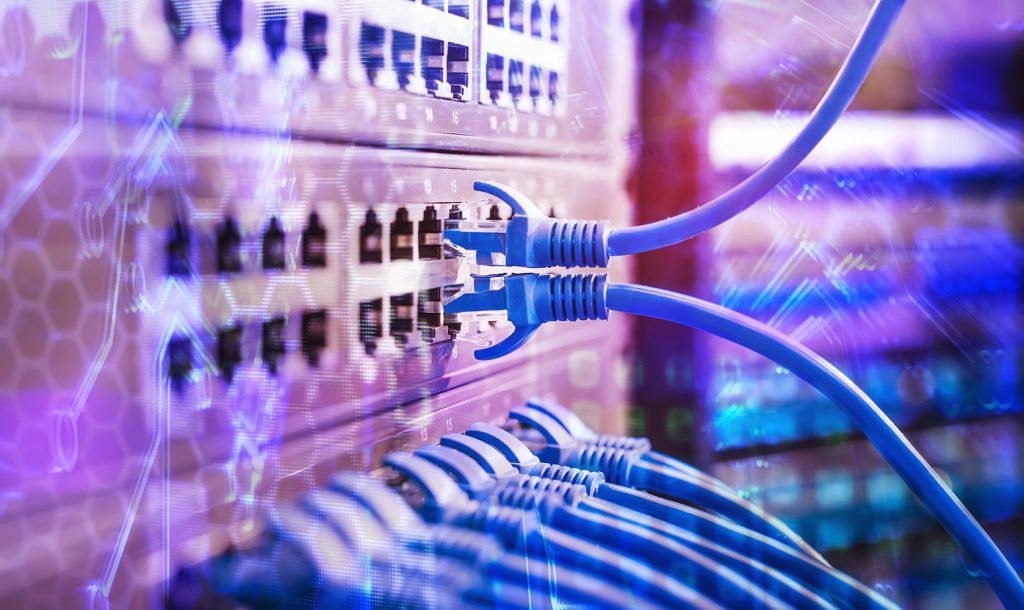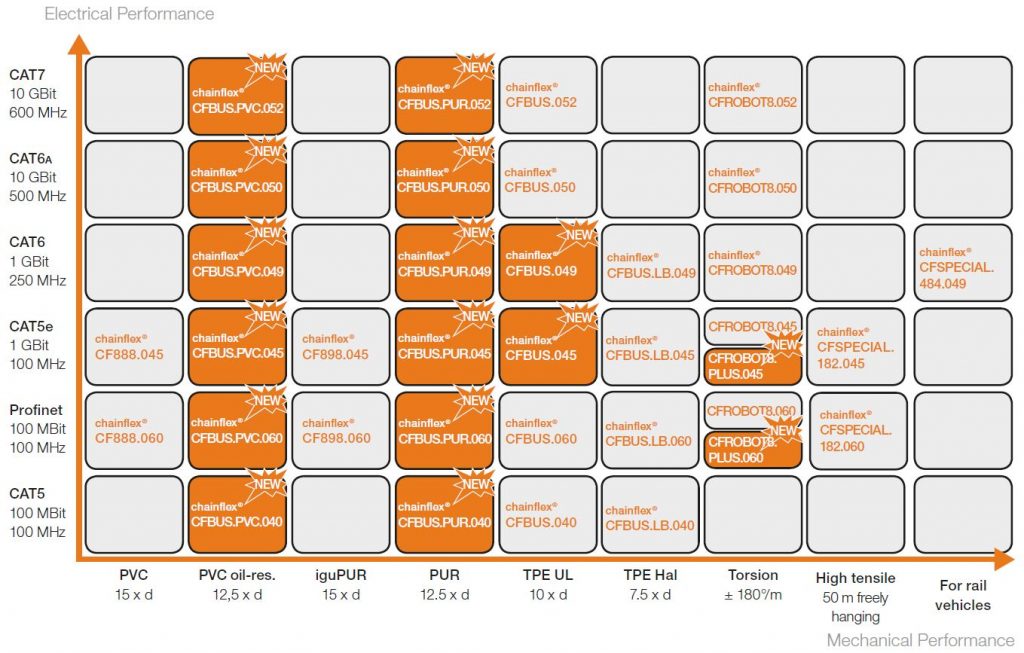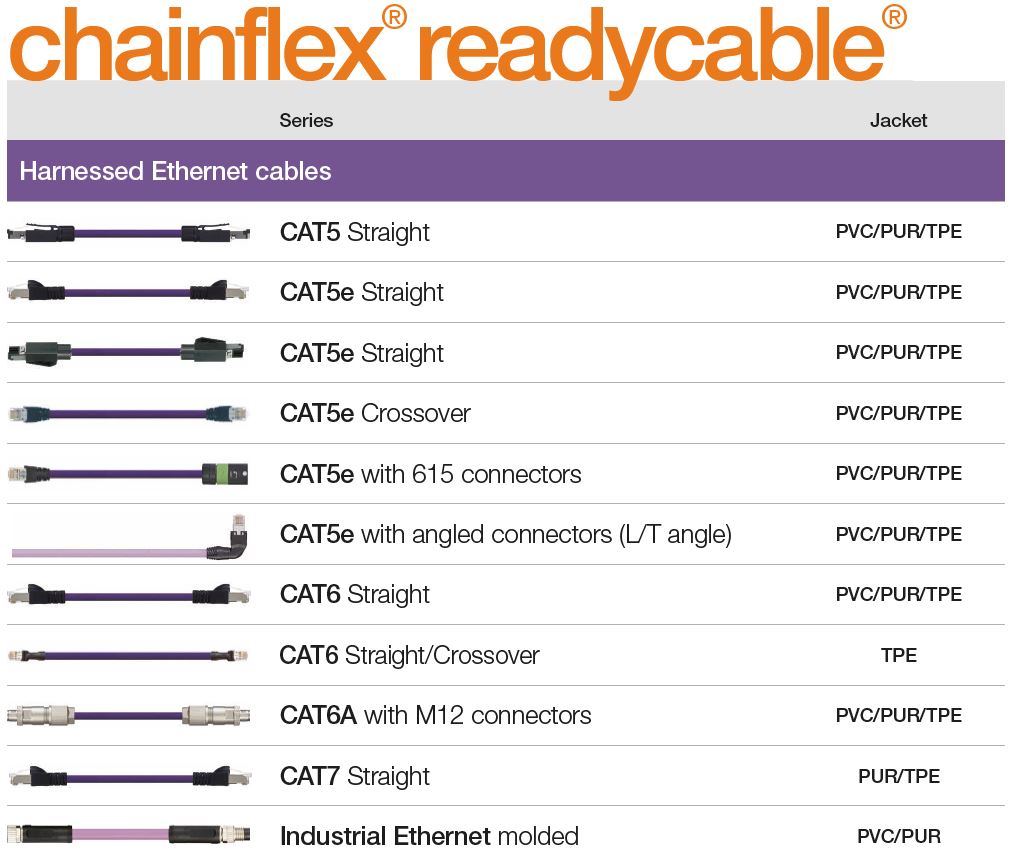Which Ethernet cable is the right one for me?
Guillermo Granero | 20. August 2019
Even if it is not a significant decision when planning a machine, choosing the right Ethernet cable is more important than you might think. If the cable does not fit, data cannot be transferred correctly, which in turn can lead to a malfunction of the machine. In this article, we will show you different kinds of Ethernet cables so that you only have to choose the best one for your situation.
Industrial Ethernet is the next step for the digitised factory of tomorrow. Studies show that the world of fieldbus is stagnating, and the number of Ethernet nodes is increasing – with high double-digit growth rates. That is the case for Asia, but also increasingly for Europe, and users decide on CC link IE technologies (IE = Industrial Ethernet).
These systems offer seamless data exchange on all levels of a production facility, from the highest control level to the manufacturing levels.

The Ethernet cable categories for industrial applications
Basically, there are eight categories of Ethernet cables on the market. However, for industrial applications we will focus on the last three and leave out CAT1 (0.4MHz): telephone, CAT2 (4MHz): ISDN or terminal systems, CAT3 (16MHz): telephone / ISDN 10BASE-T or 100BASE-T4, CAT4 (20MHz): Token Ring.
In the following, we will describe the industrial cable categories currently in use and their recommended application:
CAT5, CAT5e (up to 100MHz):
CAT5 is used mainly today. Its maximum transmission rate is 100Mbps, corresponding to Class D.
CAT6, CAT6a (up to 500MHz):
CAT6 achieves transmission rates of up to 1Gbps at 100m or 10Gbps at up to 55m and corresponds to Class E.
CAT7 (bis 1000MHz):
CAT7 achieves transmission rates of 10Gbps at 100m. In addition, the CAT7 cable is more resistant to electric interference and corresponds to Class F.
CAT8, CAT8.1, CAT8.2 (bis 2000MHz):
CAT8 achieves transmission rates of 25Gbps or 40Gbps at 30m and hence corresponds to Class G.
igus® supplies cables for energy chain systems. CAT cables are tested in energy chain systems with millions of cycles and can be used at high speed and acceleration. The product range of chainflex® comprises PVC, PUR and TPE cables. All chainflex® cables have corresponding certifications and conformities, such as UL, CSA, NFPA-79-2012, EAC, CTP, EtherCAT, CC-Link IE Field and Profinet.
How can I find the ideal cable for my application?
Using the following chart, you can find the ideal cable for your application – in accordance with speed and volume transfer, based on the e-chain bend radii.

Readily harnessed and tested cables are also available from the catalogue, with no minimum order quantity and at individually cut lengths, down to the centimetre.

What are the advantages of readily harnessed cables?
Harnessed readycable® cables are delivered ready-to-install for your plant so that you don’t have to worry about the separate purchase of connectors, complex harnessing etc.
Your advantages are:
- Clearly assigned number so that you can receive all information on readycable® and readychain®
- 36-month guarantee
- 100% tested – in the industry’s largest 2,750m² test lab
Browse in our readycable® shop and find the right ethernet cable.
Or use our readycable® product finder.


